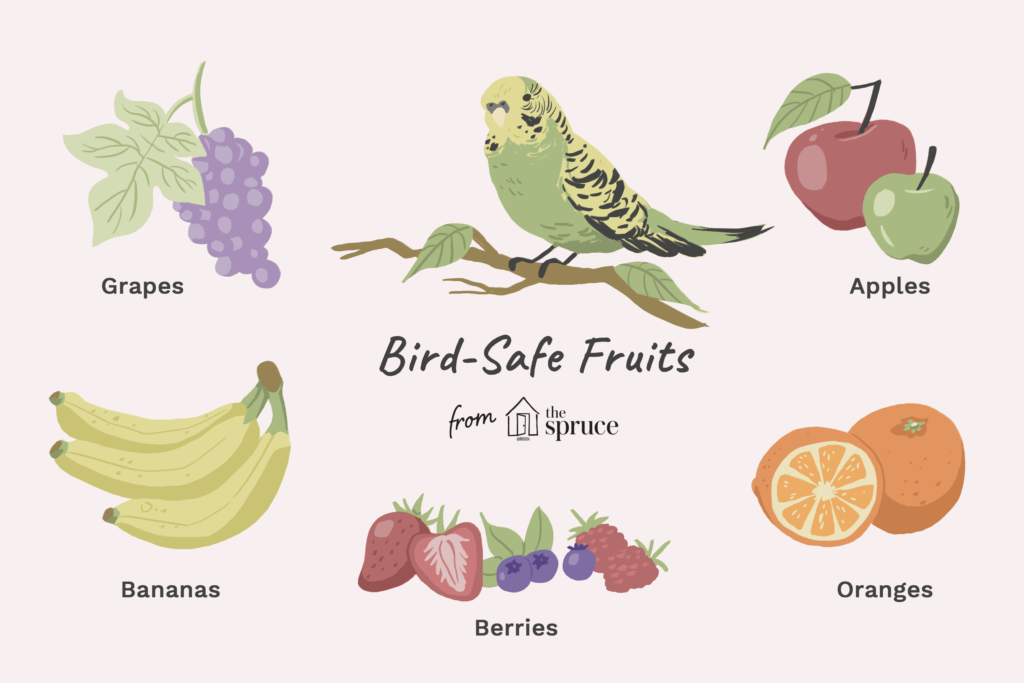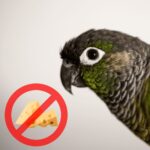Yes, parrots can eat raspberries. Raspberries are safe and nutritious for parrots in moderation.
Parrots enjoy a variety of fruits, and raspberries are no exception. These small, vibrant berries are packed with vitamins and antioxidants, which contribute to a parrot’s overall health. Offering raspberries as a treat can diversify their diet and provide essential nutrients.
Always wash the berries thoroughly to remove pesticides and chemicals. While raspberries are beneficial, balance them with other fruits, vegetables, and seeds to ensure a well-rounded diet. Overfeeding any single type of food can lead to nutritional imbalances. Monitor your parrot’s reaction to new foods and consult a vet for personalized dietary advice. This approach ensures your parrot enjoys a healthy and varied diet.
Introduction To Parrots And Raspberries
Parrots are vibrant, intelligent birds loved by many. Pet owners often wonder about the best foods for their feathery friends. One common question is: Can parrots eat raspberries? Let’s explore this topic.
Parrots’ Dietary Needs
Parrots have unique dietary needs. They require a balanced diet to stay healthy. Their diet should include:
- Fruits
- Vegetables
- Seeds
- Nuts
Fruits and vegetables provide essential vitamins and minerals. Seeds and nuts offer necessary fats and proteins. It’s important to offer a variety of foods to ensure a balanced diet.
Introduction To Raspberries
Raspberries are delicious, juicy fruits. They are rich in vitamins and antioxidants. These small berries come in various colors, including red, black, and yellow. Raspberries are low in calories and high in fiber.
Here are some key benefits of raspberries:
- High in Vitamin C
- Rich in antioxidants
- Good source of fiber
| Nutrient | Amount per 100g |
|---|---|
| Calories | 52 |
| Vitamin C | 26.2 mg |
| Fiber | 6.5 g |
Given their nutritional profile, raspberries can be a healthy treat for parrots. Just remember, moderation is key. Too many raspberries can upset a parrot’s stomach.
Nutritional Value Of Raspberries
Raspberries are not only delicious but also packed with essential nutrients. They offer a wealth of vitamins, minerals, and antioxidants. These elements are beneficial for both humans and parrots. Let’s explore the nutritional value of raspberries in detail.
Vitamins And Minerals
Raspberries are rich in vitamins and minerals. These tiny fruits provide a significant amount of vitamin C, which boosts the immune system. They also contain vitamin K, vital for blood health.
In addition, raspberries are a good source of manganese and fiber. Manganese helps in bone development, while fiber aids digestion. Here is a quick look at the vitamins and minerals in raspberries:
| Vitamin/Mineral | Amount per 100g |
|---|---|
| Vitamin C | 26.2 mg |
| Vitamin K | 7.8 µg |
| Manganese | 0.67 mg |
| Fiber | 6.5 g |
Antioxidants
Raspberries contain powerful antioxidants that help fight free radicals. These antioxidants include quercetin and ellagic acid. Both are known for their anti-inflammatory properties.
Antioxidants play a crucial role in maintaining overall health. They protect cells from damage and reduce the risk of chronic diseases. For parrots, antioxidants can support their immune system and enhance their feather health.
Here are the key antioxidants found in raspberries:
- Quercetin
- Ellagic Acid
- Vitamin C
Including raspberries in a parrot’s diet can be beneficial. They provide essential nutrients and antioxidants that support their health.
Benefits Of Raspberries For Parrots
Raspberries are a delightful treat for parrots. These berries are packed with nutrients. They offer many benefits that can improve your parrot’s health. Let’s explore how raspberries can boost your parrot’s well-being.
Boosting Immune System
Raspberries are rich in vitamin C. This vitamin is crucial for a strong immune system. A healthy immune system helps parrots fight off diseases.
These berries also contain antioxidants. Antioxidants protect cells from damage. They keep your parrot vibrant and active.
Feeding raspberries can help your parrot stay healthy. It can reduce the risk of infections.
Enhancing Digestive Health
Raspberries are high in dietary fiber. Fiber supports good digestion. It helps prevent constipation in parrots.
They also contain water. Water keeps your parrot hydrated. Proper hydration is essential for digestion.
Adding raspberries to your parrot’s diet can improve their digestive health. It ensures they have regular bowel movements.
| Benefit | Nutrient |
|---|---|
| Boosting Immune System | Vitamin C, Antioxidants |
| Enhancing Digestive Health | Dietary Fiber, Water |

Credit: pangovet.com
Potential Risks
Raspberries are a healthy treat for parrots. Yet, they pose some risks. Understanding these risks helps ensure your parrot stays healthy.
Overfeeding Concerns
Feeding too many raspberries can harm your parrot. Raspberries are high in sugar. Too much sugar can lead to obesity and diabetes.
| Issue | Impact |
|---|---|
| Obesity | Weight gain, reduced mobility |
| Diabetes | Blood sugar issues, long-term health problems |
Limit raspberries to a small part of their diet. Balance their diet with other fruits and vegetables.
Allergic Reactions
Parrots can have allergies, just like humans. Some parrots may be allergic to raspberries. Watch for signs of allergies after feeding raspberries.
- Swelling around the beak
- Itchy skin
- Breathing problems
If your parrot shows these signs, stop feeding raspberries. Consult a vet for advice. Testing new foods in small amounts is always safer.
Safe Serving Suggestions
Parrots love fruits, and raspberries can be a tasty treat. But you must serve them properly to keep your bird healthy. Here are some safe serving suggestions for giving raspberries to your parrot.
Portion Sizes
Portion size is very important for your parrot’s diet. Too much fruit can cause digestive issues. A small serving is best.
- For small parrots, offer 1-2 raspberries.
- For medium parrots, offer 3-4 raspberries.
- For large parrots, offer 5-6 raspberries.
Always monitor your parrot’s reaction to new foods.
Preparation Tips
Preparation of raspberries is simple but crucial. Follow these steps:
- Wash the raspberries thoroughly to remove any pesticides or dirt.
- Inspect the raspberries for any signs of mold or spoilage.
- Cut the raspberries into smaller pieces if your parrot is small.
- Serve the raspberries in a clean bowl to avoid contamination.
These steps ensure the raspberries are safe and easy to eat.

Credit: www.reddit.com
Alternatives To Raspberries
Parrots enjoy a variety of fruits in their diet. While raspberries are safe, there are many other delicious options. Feeding parrots diverse fruits ensures they receive essential nutrients.
Other Safe Fruits
- Apples: Remove seeds and core. Parrots enjoy small apple slices.
- Bananas: Peel and slice. Bananas are easy for parrots to eat.
- Blueberries: These are small and nutritious. Parrots love them.
- Grapes: Cut into halves. Grapes are sweet and hydrating.
- Oranges: Remove seeds and peel. Offer in small segments.
Balanced Diet Tips
A balanced diet is crucial for your parrot’s health. Here are some tips:
- Variety: Offer different fruits, vegetables, and seeds.
- Moderation: Fruits should be a treat, not the main diet.
- Fresh Water: Always provide clean, fresh water.
- Monitor: Watch for any adverse reactions to new foods.
Here’s a table of some safe fruits and their benefits:
| Fruit | Benefits |
|---|---|
| Mango | Rich in vitamins A and C |
| Kiwi | High in vitamin C and fiber |
| Pineapple | Contains bromelain, aids digestion |
Signs Of Adverse Reactions
Feeding raspberries to your parrot can be a delightful treat. However, it’s essential to be aware of any signs of adverse reactions. Parrots may have sensitivities or allergies to certain foods, and knowing the symptoms can help ensure their safety.
Symptoms To Watch For
Observe your parrot closely after feeding them raspberries. Look out for the following symptoms:
- Diarrhea: Loose or watery stools can indicate digestive issues.
- Vomiting: Regurgitation of food may be a sign of an allergic reaction.
- Lethargy: Reduced energy levels or unusual tiredness.
- Swelling: Swelling around the beak, eyes, or feet.
- Respiratory Issues: Difficulty breathing or wheezing.
- Feather Plucking: Excessive grooming or feather loss.
Immediate Actions
If you notice any of these symptoms, take the following steps immediately:
- Remove the Food: Take away any remaining raspberries.
- Hydrate: Offer fresh water to help flush out toxins.
- Observe: Keep an eye on your parrot for further symptoms.
- Contact a Vet: Call your avian vet for advice.
Remember, your parrot’s health is paramount. Monitor their reactions closely and act swiftly if needed.
Expert Opinions
Understanding whether parrots can eat raspberries involves consulting experts. This section delves into insights from veterinarians and experiences from parrot owners.
Veterinarian Insights
Veterinarians agree that raspberries are safe for parrots. These berries are rich in vitamins and antioxidants. They can boost a parrot’s immune system. However, moderation is key. Too many raspberries can cause digestive issues.
Here is a quick table summarizing the benefits and precautions:
| Benefits | Precautions |
|---|---|
| Rich in Vitamin C | Feed in moderation |
| Contains antioxidants | Watch for allergies |
| Boosts immune system | Avoid seeds |
Parrot Owner Experiences
Parrot owners often share their experiences with feeding raspberries. Many have positive feedback. Birds enjoy the sweet taste and texture. Some parrots even recognize the berry and get excited.
Here are some common observations from parrot owners:
- Most parrots love raspberries.
- Some parrots prefer fresh over frozen raspberries.
- Owners notice shinier feathers and more energy.
While raspberries are a hit, always observe your parrot’s reaction. Introduce the fruit slowly. This will help avoid any adverse reactions.

Credit: www.reddit.com
Conclusion
Parrots can safely enjoy raspberries as part of their diet. These berries provide essential vitamins and antioxidants. Remember to wash them thoroughly before serving. Moderation is key to avoid any digestive issues. Including raspberries in your parrot’s diet can add variety and nutrition, ensuring a healthy and happy bird.
Ryan Everhart is a passionate bird enthusiast and blogger, primarily writing on his website, Avian Whispers. His journey into the world of bird blogging began with a deep interest in parrots, a species that captivated his attention for their intelligence and social behavior. Over time, his content expanded to cover a broader range of bird species, offering insights into bird behavior, care, habitats, and conservation.
Ryan is dedicated to educating his audience, which includes both new bird owners and seasoned enthusiasts. His writing is filled with personal experiences, expert knowledge, and practical advice on bird care. Through Avian Whispers, he aims to foster a deeper appreciation for birds, emphasizing their role in nature and the joys of having them as pets.
Starting with articles focused on parrots, Ryan’s work now encompasses a diverse range of topics such as feeding, training, habitat enrichment, and bird health. His love for birds extends beyond parrots, diving into various avian species. His informative and heartfelt writing reflects his commitment to the well-being of birds and the desire to help others connect with these creatures.
As a growing voice in the bird blogging community, Ryan strives to provide a platform where bird lovers can learn, share experiences, and connect over a shared passion for avian life. His blogs are not only educational but also serve as a reminder of the importance of protecting and nurturing the bond between humans and birds.




